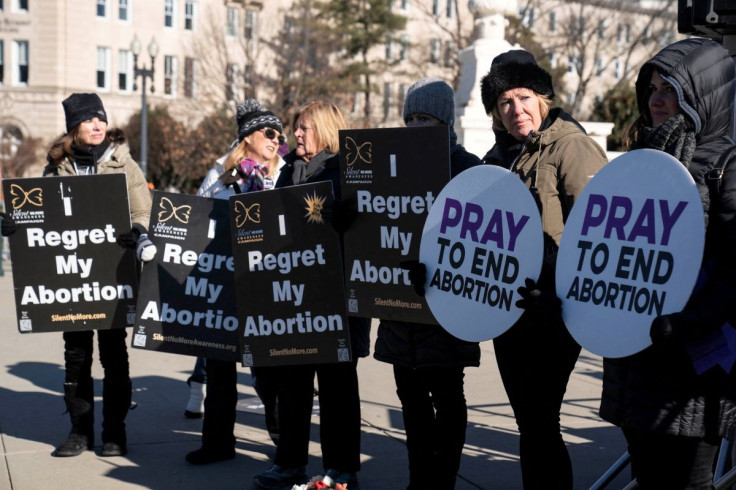Florida House Expected To Pass Ban On Abortion After 15 Weeks

Florida's House of Representatives is expected on Wednesday to pass a ban on abortion after 15 weeks of pregnancy, a measure multiple Republican-led states are pushing as the U.S. Supreme Court weighs the constitutionality of such limits.
Florida's move would significantly reduce access to late-term abortions for women across the U.S. Southeast, many of whom travel hundreds of miles to end pregnancies there because of stricter abortion laws in surrounding states.
The legislation is next expected to pass the state Senate. Florida Governor Ron DeSantis, a Republican, has signaled his support.
Republican lawmakers around the country have filed bills mirroring Mississippi's 15-week ban, which is under review by the Supreme Court. Arizona's Senate and West Virginia's House also passed similar 15-week abortion bans on Tuesday.
The Supreme Court has signaled its willingness to allow Mississippi's law to stand, even though it conflicts with the 1973 Roe v. Wade decision that established the right to end a pregnancy in the United States before a fetus is viable, typically around 24 weeks.
Florida's measure makes exceptions to the 15-week rule only in cases when the mother is at risk of death or "irreversible physical impairment," or the fetus has a fatal abnormality. No exceptions for rape or incest are included.
The state currently permits abortions up to 24 weeks without a mandatory waiting period, meaning a woman can terminate her pregnancy the day she arrives at a clinic.
A 2017 survey by the Guttmacher Institute, an abortion rights advocacy research group, found there were 65 abortion-providing sites in Florida that year, more than triple the number of any other state in the South.
"There has been, over the years, acceptance of abortion clinics even though the political environment is very hostile to abortion and restrictions have been adapted," said Elizabeth Nash, a state policy expert at the Guttmacher Institute. "So a 15-week abortion ban would have a very big impact on access to care for Floridians and those in the South."
Anti-abortion legislators hope the 15-week bans would withstand legal challenges as Mississippi's case is pending. The Supreme Court's ruling in that case is expected this spring.
Florida's bill would take effect July 1 if enacted.
© Copyright Thomson Reuters 2024. All rights reserved.







